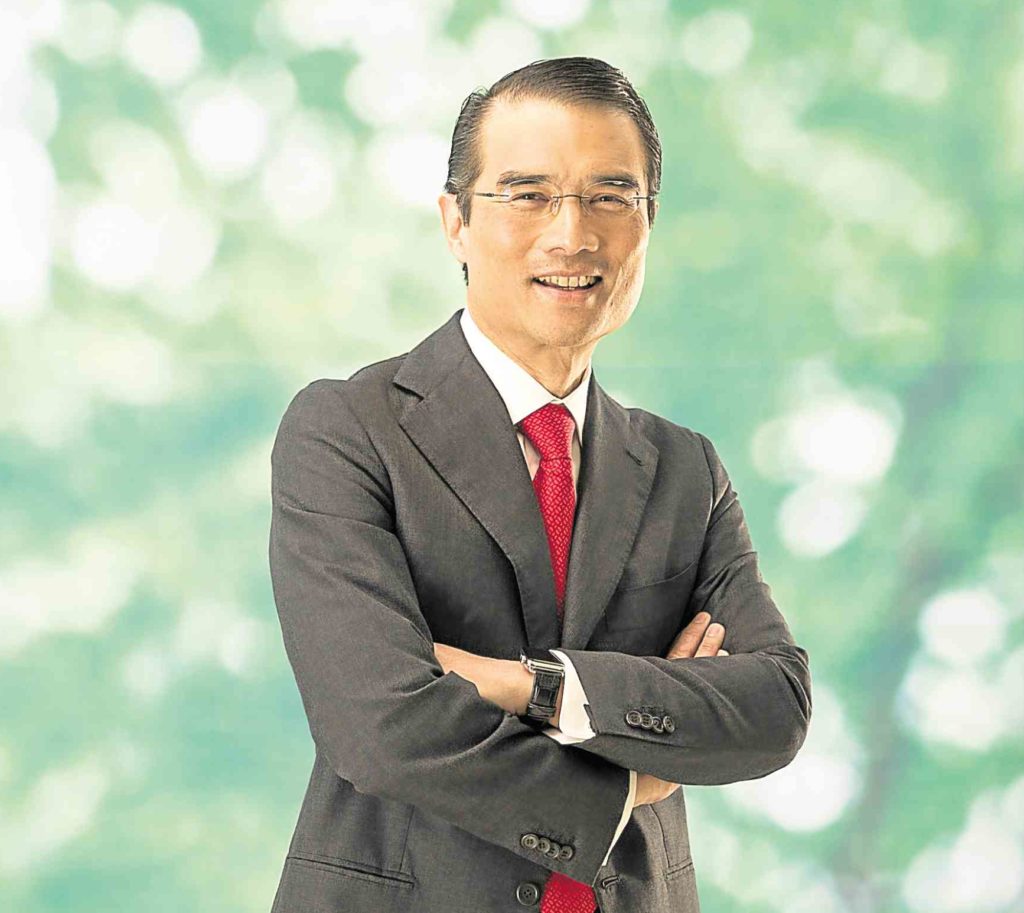Who says renewable energy will make power grids unstable?
There’s a revolution happening in the world today with many powerful vectors converging to change the energy industry as we know it. I’m quite excited by it because if we’re able to seize them and ride the wave, we have a golden opportunity to leapfrog and build a power industry that’s truly for the 21st century.
Let me start by saying that last May 2016, we made the categorical announcement at our annual shareholders meeting that our group of companies would not invest, build or develop any coal-fired power plants.
We were the only large energy company in the Philippines to declare unconditionally that we would not do coal-fired power.
It wasn’t always that way—we were actively bidding for power plants, which included coal, during the government’s privatization program. Being among the three largest power companies in the country, we definitely had the organizational capability and resources to develop coal-fired plants.
Operating in a deregulated and privatized power market in the Philippines means staying competitive and having the cheapest generation sources in order to keep winning customers. Coal, given its abundance in the world, was traditionally among the cheapest fuels for power generation.
That has changed in the last year or so. We’ve always been staunch believers in a decarbonizing pathway but I’ll be the first to admit that we believed the world still had more time to get its act in order.
That view changed immensely in November 2013, when our largest geothermal plant in Leyte, Southern Philippines, was directly hit by one of the most powerful typhoons on historical record to ever hit the planet.
Personally fearing for the lives and safety of all 743 of our employees and seeing them knocked off their feet overnight; seeing hard-nosed mayors literally crying and desperate for food and water; witnessing the enormous suffering of communities who lost loved ones and whatever few possessions they had—seeing all these first hand, as well as the scale of rescue, relief and rebuilding efforts that came after, has had an enormous impact on how we’ve moved forward as a company. This was the rude wake-up call. For an energy company, it can no longer be “business as usual.”
Despite our countrymen’s vulnerability to the effects of climate change, only token importance is given to such concerns in national policy. The recent coal tax was a step in the right direction but will only amount to as little as one to three centavos per kwh in tariffs to coal-fired power plants. In other countries like India, the coal tax is six centavos per kwh, in South Korea it reaches 25 centavos per kwh.
You might wonder what keeps us committed to this green road despite all the obstacles?
There are more and more companies that are conscious about greening their footprints and supply chains. This has a lot to do with the millennial consumer coming of age.
In the Philippines, we’ve been seeing some electricity customers specifically coming to us because they want to green their supply chains with renewable power. Then there is the RE 100, or 125 of the world’s largest companies pledging their individual glide paths toward using 100-percent renewable energy in their supply chains.
Indeed, we are not alone in what sometimes feels like a lonely battle.
Another reason we’re so committed to our green platform is they happen to be very competitive in the Philippine market. The Philippines is primarily a services-driven economy. The Retail Competition and Open Access that’s underway and progressing will disaggregate that demand. Our portfolio that blends flexible natural gas-fired plants and geothermal, the only competitive 24/7 RE technology today, is best for serving a type of demand called mid-merit. Having said that, in fact natural gas and geothermal, with just 1/3 and 1/10 the carbon emissions respectively, of even the most advanced coal plants, are capable of the latter’s prices at baseload today.
Another reason for optimism about clean energy is that technology is moving very fast. Solar, wind and battery storage have experienced exponential cost reductions over the last few years. Solar PV solutions coming in more aesthetic and friendly forms like Tesla’s solar roof tiles.
When someone tells you that renewable energy is intermittent and makes power grids unstable, know that there are many technically and economically feasible ways to handle these issues, and progressive grids are already incorporating them into their day-to-day operations.
Coal is no longer cheap. It doesn’t have the flexibility needed for the inevitable penetration of RE sources into our lives. Natural gas-fired power plants, on the other hand, are seen as indispensable technology for keeping the lights on in the transition to the all-renewable future we’re heading toward.
It would be nice to believe that this revolution will occur peacefully, and in due course. However, that belief blissfully ignores the huge investments at stake in this great and astonishing energy transition that’s underway. More astute observers believe that coal and other high carbon-emitting assets, especially new ones, as the poet Dylan Thomas would say, will not “go gently into that good night.” What’s more likely, to paraphrase him liberally, is that they will continue to, “rage, rage against the dying of the light.”
But I must say that your vigilance, your actions and your choices as advocates and consumers will be indispensable in the pivotal years ahead. The direct engagement of civil society and environmental groups in energy issues is the only assurance we have that the country does not blindly lock itself into the old electricity paradigm. Instead, we must seize this opportunity to build a new one that leapfrogs us for the demands of the coming century. —CONTRIBUTED
(Editor’s Note: Lopez is First Philippine Holdings chair and CEO. The above is an excerpt from Lopez’s speech at the 2nd Philippine Environment Summit last Feb. 22 held in Cebu City.)















